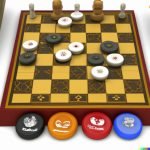Monopoly, the classic board game, has been a household favorite for decades, captivating players with its strategic gameplay and competitive spirit. From its humble beginnings to its worldwide popularity today, Monopoly continues to be a beloved game for people of all ages. In this article, we will delve into the history of Monopoly, exploring its origins and evolution over the years.
The history of Monopoly is rich and fascinating, tracing back to its creation in the early 20th century. We will uncover the origins of the game and how it has evolved into the modern version that we know today. Additionally, we will explore how Monopoly has become a staple in popular culture, making its mark in movies, TV shows, and music.
Furthermore, we will take a comprehensive look at the various editions and special versions of Monopoly available. Whether it’s themed editions based on popular movies or unique versions inspired by cities around the world, there is certainly no shortage of choices when it comes to enjoying this timeless game. So buckle up as we embark on an exciting journey through the history and evolution of Monopoly.
How to Play
Monopoly, the classic board game, has been a beloved pastime for players of all ages since its creation in the early 20th century. The game was first patented in 1935 by Charles Darrow and has since evolved into a worldwide phenomenon. With its combination of luck, strategy, and ruthless negotiation, Monopoly has become a staple in the world of board games.
The objective of Monopoly is simple: to become the wealthiest player through buying, renting, and selling properties. Players take turns rolling dice to move around the game board, buying properties and collecting rent from opponents. As players acquire more properties, they can build houses and hotels to increase rent prices and bankrupt their opponents. However, players must also be mindful of expenses such as taxes, housing repairs, and other unforeseen costs that can deplete their funds.
For beginners just learning how to play Monopoly, it’s important to understand the basic rules and strategies to succeed in the game. One key tip for new players is to prioritize acquiring complete color sets of properties as soon as possible. This allows players to build houses and hotels, increasing rent revenue from opponents who land on their spaces. Additionally, trading with other players can be a valuable strategy for obtaining specific properties needed for completing sets.
Advanced players often employ more strategic tactics to gain an edge over their opponents in Monopoly. They may focus on effectively managing their resources by strategically building houses or hotels on key properties while withholding development on others to maintain liquidity. Negotiation skills also play a crucial role in advanced gameplay as they negotiate trades with other players to secure desirable properties needed for completing color sets.
Different Versions
The classic board game, Monopoly, has seen numerous editions and special versions released over the years, catering to a wide range of interests and themes. From classic editions featuring iconic cities like New York and London to themed versions based on popular movies and TV shows, the game offers diverse experiences for players of all ages.
One of the most popular variations is the “Monopoly: Here & Now” edition, which features modern updates such as new tokens and properties reflective of today’s culture. Additionally, there are themed versions based on popular franchises like Star Wars, Disney, and Harry Potter, allowing fans to immerse themselves in their favorite fictional worlds while playing the game.
In addition to city-themed editions representing major metropolitan areas around the world, Monopoly has also released special editions that celebrate smaller towns and landmarks. These localized versions often feature community-specific tokens and properties that hold sentimental value for residents and visitors alike.
The range of different versions of Monopoly truly showcases the game’s versatility and enduring appeal. Whether players are drawn to classic city editions or specialized themed versions, there’s a Monopoly edition out there for everyone’s interests, making it a timeless favorite among board game enthusiasts.
| Monopoly Version | Features |
|---|---|
| Monopoly: Here & Now Edition | Modern updates with new tokens and properties reflecting contemporary culture |
| Themed Versions (Star Wars, Disney, Harry Potter) | Immersive experiences in popular fictional worlds |
| City-Themed Editions (New York, London) | Represent iconic cities with unique properties and landmarks |
| Localized Versions (Small Towns) | Incorporate community-specific tokens and properties with sentimental value |
Notable Features
Monopoly, the classic board game, is known for its iconic features that have made it a beloved and enduring game for generations. From the distinctive game board to the unique tokens and iconic properties like Boardwalk and Park Place, these elements are essential to the Monopoly experience.
Game Board
The Monopoly game board is instantly recognizable with its distinct layout of properties, including the coveted Boardwalk and Park Place. The colorful spaces, from the vibrant purple of Mediterranean Avenue to the rich blue of Boardwalk, create a visually appealing and engaging playing environment. The board also features other key components such as Chance and Community Chest cards, as well as Jail and Free Parking spaces.
Tokens
One of the most memorable aspects of Monopoly is its collection of tokens, each with its own unique design and character. Whether it’s the classic battleship or old-fashioned race car, players have their favorite tokens that they use to navigate around the board and acquire properties. Over the years, special edition versions of Monopoly have introduced new tokens based on popular culture icons or themes.
Iconic Properties
Perhaps one of the most exciting parts of playing Monopoly is acquiring and developing iconic properties like Boardwalk and Park Place. These high-value properties are sought after by players as they aim to build their real estate empires and bankrupt their opponents. The names of these properties have become synonymous with wealth and success in popular culture.
In summary, Monopoly’s notable features – including its game board, tokens, and iconic properties – have contributed to its enduring appeal as a classic board game that continues to captivate players across the globe.
Monopoly Tournaments
Monopoly has become more than just a beloved classic board game; it has also developed a competitive side with tournaments, championships, and professional players. These events draw in passionate players from around the world who are eager to showcase their skills and strategic prowess in the game. From local competitions to international tournaments, the world of competitive Monopoly is vast and diverse.
One notable event in the world of competitive Monopoly is the annual World Monopoly Championship, which brings together top players from various countries to compete for the coveted title. The tournament features intense gameplay and high-stakes strategies as players battle it out for victory. Additionally, there are regional and national level competitions that offer aspiring champions the chance to prove their mastery of the game.
Professional Monopoly players have also emerged in recent years, gaining recognition for their expertise and success in competitive play. These individuals dedicate themselves to studying the intricate mechanics of Monopoly, honing their tactics, and participating in tournaments at all levels. Their dedication has elevated the status of competitive Monopoly and contributed to its growing popularity among enthusiasts.
It’s clear that competitive Monopoly has carved out a niche within the gaming community, extending beyond casual gameplay to offer a platform for skilled players to demonstrate their abilities on an international stage.
| World Monoply Championship | Annual Tournament Featuring Top Players From Different Countries |
|---|---|
| National Competitions | Tournaments held at a country level offering aspiring champions an opportunity |
| Professional Players | Players that have gained recognition for their skills and participate in tournaments at all levels. |
Impact on Pop Culture
Monopoly, the classic board game, has had a significant impact on popular culture. From references in movies and TV shows to mentions in music lyrics, the game has made its mark across various forms of entertainment.
Movies and TV Shows
Monopoly has been featured in numerous movies and TV shows, often as a symbol of family fun or high-stakes business deals. One notable example is the iconic movie “The Princess Diaries,” where a key scene involves a giant game of Monopoly. Additionally, popular TV shows like “The Simpsons” and “Friends” have also incorporated the game into their storylines, further cementing its presence in pop culture.
Music References
The influence of Monopoly extends beyond visual media and into the realm of music. Several artists have referenced the classic board game in their lyrics, using it as a metaphor for wealth, power, or even personal relationships. From rap songs to pop hits, Monopoly continues to be a source of inspiration for musicians looking to convey themes of competitiveness and financial success.
Merchandise and Brand Collaborations
In addition to its role in movies, TV shows, and music, Monopoly’s influence on pop culture is evident through various merchandise collaborations and brand partnerships. The game has inspired limited edition sets based on popular franchises such as “Star Wars” and “Game of Thrones,” showcasing its ability to adapt to different cultural phenomena while maintaining its classic appeal.
This section will provide an overview of how Monopoly has permeated popular culture through movies, TV shows, music references, merchandise collaborations, and brand partnerships.
Monopoly Collectibles and Merchandise
Monopoly has not only been a beloved classic board game for decades, but it has also become a popular collectible and has inspired a wide range of merchandise. From vintage sets to limited edition items, there is a plethora of Monopoly-themed collectibles and merchandise available for fans of the game.
Vintage Sets
For collectors and enthusiasts, vintage Monopoly sets are highly sought after. These sets often feature unique designs, artwork, and game pieces that reflect the era in which they were produced. Vintage Monopoly sets can be found at specialty antique stores, online auctions, and through private sellers. Many collectors enjoy owning different editions of the game from various time periods to appreciate the evolution of design and production.
Limited Edition Items
In addition to vintage sets, Monopoly has released numerous limited edition items over the years. These may include special game boards featuring unique themes or collaborations with other brands or franchises. Limited edition Monopoly sets can also include custom game pieces, properties, and money designed specifically for a particular theme or event. For avid collectors, these items hold significant value due to their rarity and exclusivity.
Merchandise
Monopoly-themed merchandise extends beyond traditional board games. Fans of the classic game can find an array of products such as clothing, accessories, home decor, and novelty items featuring Monopoly branding and imagery. These products cater to both collectors and casual fans who want to incorporate their love for the game into their everyday lives. Additionally, licensed products based on popular editions or characters from the Monopoly universe offer a diverse range of options for consumers.
Modern Adaptations
In today’s digital age, it’s no surprise that the classic board game of Monopoly has made its way into the virtual world. With the rise of digital versions and mobile app adaptations, players can now enjoy the game on their smartphones, tablets, and computers.
These modern adaptations have brought a new level of accessibility and convenience to the game, allowing people to play anytime and anywhere. Whether it’s competing against friends online or playing against AI opponents, the digital versions of Monopoly have opened up a whole new world of gaming possibilities.
Furthermore, Monopoly has also expanded its presence in online gaming and virtual reality. Players can now immerse themselves in a fully interactive and three-dimensional version of the game, bringing a whole new level of realism to the experience.
With virtual reality technology, players can step into the iconic Monopoly board and navigate through its properties as if they were actually there. The integration of technology has breathed new life into this classic game, appealing to both longtime fans and a new generation of players.
As we look towards the future, it’s clear that Monopoly will continue to evolve in response to technological advancements. From digital versions to virtual reality experiences, the game remains as relevant as ever in today’s gaming landscape. Whether enjoyed in its traditional physical form or through modern adaptations, Monopoly continues to captivate players around the world with its timeless gameplay and enduring appeal.
Frequently Asked Questions
Which Is the Original Monopoly Game?
The original Monopoly game was patented and sold by Parker Brothers in 1935. It was designed by Lizzie Magie and Charles Darrow, and features Atlantic City street names.
Is My Old Monopoly Game Worth Anything?
The value of an old Monopoly game depends on its condition, edition, and rarity. Some vintage editions can be worth hundreds or even thousands of dollars to collectors. It’s best to do some research to determine the value of your specific game.
What Is Monopoly 1980s Edition?
The Monopoly 1980s Edition is a version of the classic board game that was released in the 1980s. It features gameplay similar to the original version but may have different design elements, themed tokens, or updated property values to reflect the time period it was released in.

I love playing all kinds of games – from classics like Monopoly to modern favourites like Ticket to Ride.
I created this blog as a way to share my love of board games with others, and provide information on the latest releases and news in the industry.





